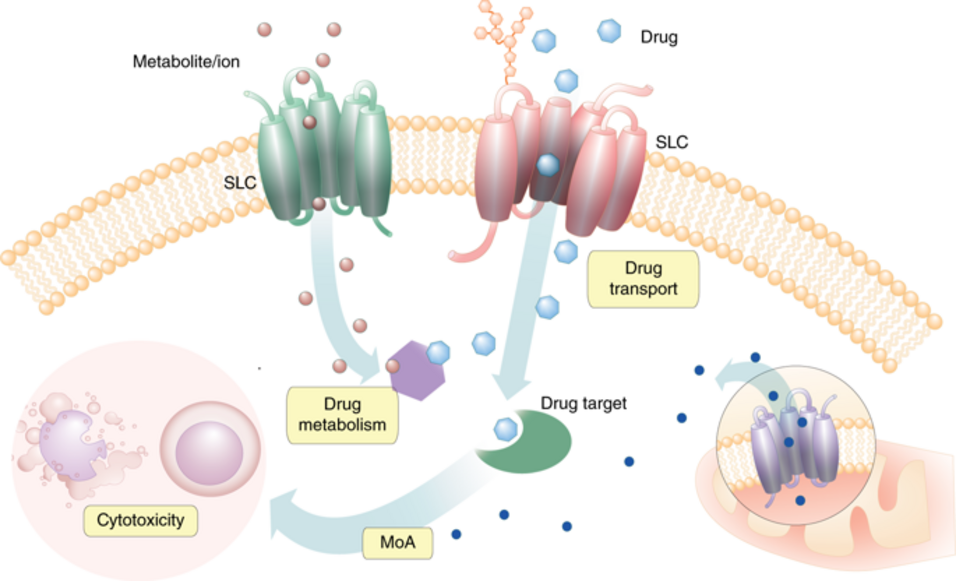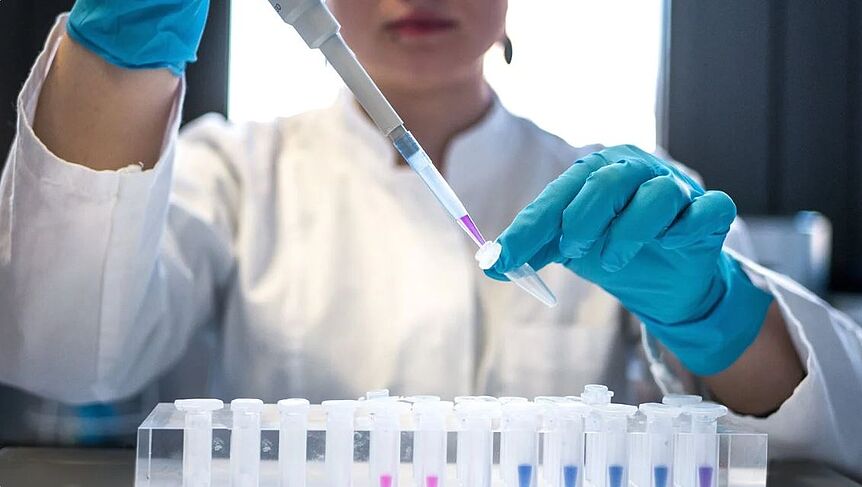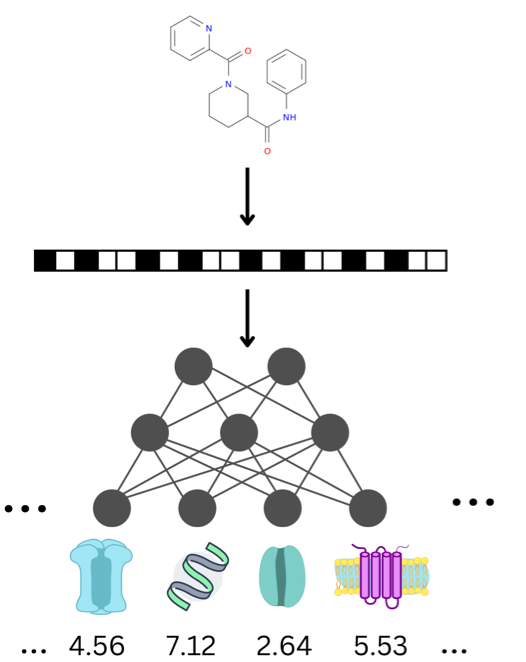We are proud and happy about this great success, of course we are especially happy for our #pharminfo colleagues Jennifer Hemmerich and Stefanie Kickinger, both part of the "Ion channels and transporters as molecular drug targets" (MolTag) PhD/doctoral program. Great work, congratulations!
This study not only provides an strong, validated argument for the indispensability of SLCs for cellular uptake and drug activity, but also provides an experimentally proven set of SLC drug associations for several clinically relevant compounds. These findings provide information about the biological functions of the transporters and pave the way for the development of future precision therapies.
Find more information in the official CeMM Press Release or at cemm.at. The Faculty of Life Sciences also published a News Article (in german) on their website which was featured on the University of Vienna homepage.
Abstract
Solute carriers (SLCs) are the largest family of transmembrane transporters in humans and are major determinants of cellular metabolism. Several SLCs have been shown to be required for the uptake of chemical compounds into cellular systems, but systematic surveys of transporter–drug relationships in human cells are currently lacking. We performed a series of genetic screens in a haploid human cell line against 60 cytotoxic compounds representative of the chemical space populated by approved drugs. By using an SLC-focused CRISPR–Cas9 library, we identified transporters whose absence induced resistance to the drugs tested. This included dependencies involving the transporters SLC11A2/SLC16A1 for artemisinin derivatives and SLC35A2/SLC38A5 for cisplatin. The functional dependence on SLCs observed for a significant proportion of the screened compounds suggests a widespread role for SLCs in the uptake and cellular activity of cytotoxic drugs and provides an experimentally validated set of SLC–drug associations for a number of clinically relevant compounds.
The study
“A widespread role for SLC transmembrane transporters in resistance to cytotoxic drugs” was published in Nature Chemical Biology on 9 March 2020. DOI: 10.1038/s41589-020-0483-3
Authors
Enrico Girardi, Adrián César-Razquin, Sabrina Lindinger, Konstantinos Papakostas, Justyna Konecka, Jennifer Hemmerich, Stefanie Kickinger, Felix Kartnig, Bettina Gürtl, Kristaps Klavins, Vitaly Sedlyarov, Alvaro Ingles-Prieto, Giuseppe Fiume, Anna Koren, Charles-Hugues Lardeau, Richard Kumaran Kandasamy, Stefan Kubicek, Gerhard F. Ecker, Giulio Superti-Furga
Funding
The study was funded with support by the Austrian Academy of Sciences, the European Research Council (ERC) under the European Union's Horizon 2020 research and innovation program (Grant Agreement No.695214, awarded to Giulio Superti-Furga), the Austrian Science Fund (FWF I2192-B22 ERASE; FWF P29250-B30 VITRA) and by a Marie Sklodowska-Curie fellowship to Enrico Girardi (MSCA-IF-2014-661491).
Research in the Kubicek laboratory is supported by the Austrian Federal Ministry for Digital and Economic Affairs and the National Foundation for Research, Technology, and Development, the Austrian Science Fund (FWF) F4701 and the European Research Council (ERC) under the European Union’s Horizon 2020 research and innovation programme (ERC-CoG-772437).
The Pharmacoinformatics Research Group acknowledges funding provided by the Austrian Science Fund FWF W-1232 MolTag.




